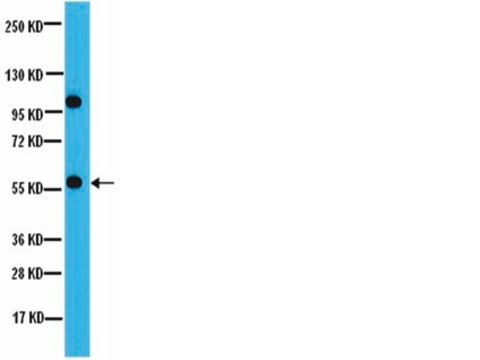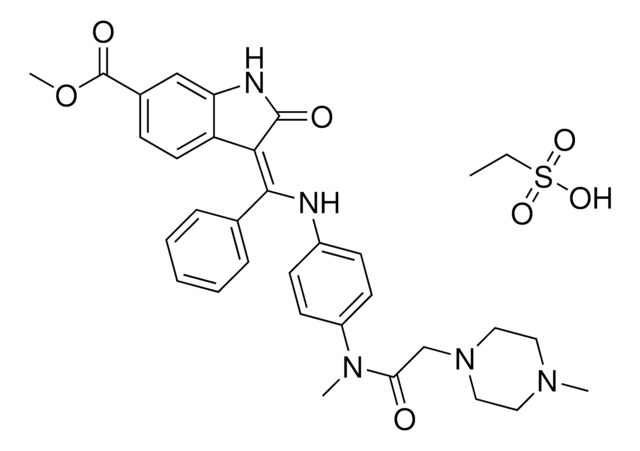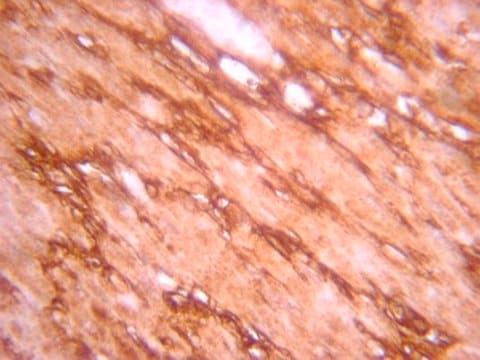07-1817
Anti-phospho-SRPK2 (Ser494) Antibody
from rabbit, purified by affinity chromatography
Synonim(y):
Serine/threonine-protein kinase SRPK2, SFRS protein kinase 2, Serine/arginine-rich protein-specific kinase 2, SR-protein-specific kinase 2
About This Item
Polecane produkty
pochodzenie biologiczne
rabbit
Poziom jakości
forma przeciwciała
affinity isolated antibody
rodzaj przeciwciała
primary antibodies
klon
polyclonal
oczyszczone przez
affinity chromatography
reaktywność gatunkowa
human, mouse
reaktywność gatunkowa (przewidywana na podstawie homologii)
Xenopus (based on 100% sequence homology), rat (based on 100% sequence homology)
metody
inhibition assay: suitable (peptide)
western blot: suitable
numer dostępu NCBI
numer dostępu UniProt
Warunki transportu
wet ice
docelowa modyfikacja potranslacyjna
phosphorylation (pSer494)
informacje o genach
human ... SRPK2(6733)
Opis ogólny
Specyficzność
Immunogen
Zastosowanie
Signaling
Cell Cycle, DNA Replication & Repair
Jakość
Western Blot Analysis: 1 µg/mL of this antibody detected SRPK2 in 10 µg HepG2 cell lysate.
Opis wartości docelowych
Postać fizyczna
Przechowywanie i stabilność
Komentarz do analizy
Untreated and insulin treated HepG2 cell lysate
Inne uwagi
Oświadczenie o zrzeczeniu się odpowiedzialności
Not finding the right product?
Try our Narzędzie selektora produktów.
Kod klasy składowania
12 - Non Combustible Liquids
Klasa zagrożenia wodnego (WGK)
WGK 1
Temperatura zapłonu (°F)
Not applicable
Temperatura zapłonu (°C)
Not applicable
Certyfikaty analizy (CoA)
Poszukaj Certyfikaty analizy (CoA), wpisując numer partii/serii produktów. Numery serii i partii można znaleźć na etykiecie produktu po słowach „seria” lub „partia”.
Masz już ten produkt?
Dokumenty związane z niedawno zakupionymi produktami zostały zamieszczone w Bibliotece dokumentów.
Nasz zespół naukowców ma doświadczenie we wszystkich obszarach badań, w tym w naukach przyrodniczych, materiałoznawstwie, syntezie chemicznej, chromatografii, analityce i wielu innych dziedzinach.
Skontaktuj się z zespołem ds. pomocy technicznej








